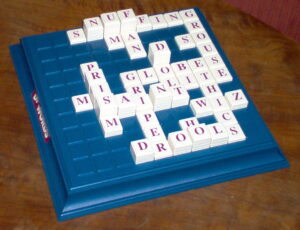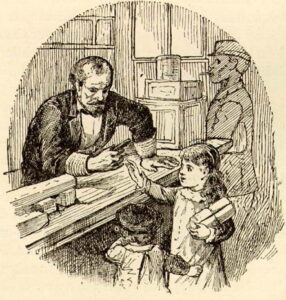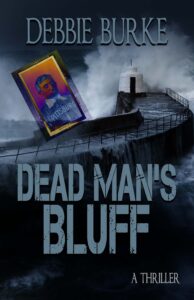By Debbie Burke
Unfamiliar words always catch my attention. Since words are a writer’s most important tool, I figure we can’t have too many in our toolbox.
Some words are just plain fun, either because of their sound or their meaning. Today, let’s play with several I recently ran across.
Lagniappe
TKZ’s own Joe Hartlaub used this term in a recent comment. What the heck is lagniappe, I wondered.
A quick Wikipedia search revealed the definition of lagniappe as “a small gift given to a customer by a merchant at the time of a purchase” (such as a 13th doughnut on purchase of a dozen), or more broadly, “something given or obtained gratuitously or by way of good measure.”
Mark Twain collected the word as a souvenir during a journey. In Life on the Mississippi he wrote: “We picked up one excellent word – a word worth travelling to New Orleans to get; a nice limber, expressive, handy word – ‘Lagniappe.’ They pronounce it lanny-yap … When a child or a servant buys something in a shop – or even the mayor or governor, for aught I know – he finishes the operation by saying, – ‘Give me something for lagniappe.‘ The shopman always responds; gives the child a bit of liquorice-root.”
According to Wikipedia, the word origin is “from the Louisiana French adapting a Quechua word brought in to New Orleans by the Spanish Creoles.”
The use of unusual words in fiction can be a risk because the writer doesn’t want to pull the reader out of the story to check the dictionary. In olden days, we had find a Merriam-Webster and page through the thick volume. However, with instant internet access, looking up an unfamiliar word is easy. Sometimes, learning a new word is a value-added bonus in the book…like a lagniappe.
Matryoshka doll
Have you seen Russian nesting dolls, also known as Matryoshka dolls? Open the first doll to find a smaller second one inside; open the second one to find an even smaller third doll inside; and so on until the last and tiniest doll is revealed. Originally made as children’s toys, they became popular mementos for tourists visiting Russia.
The root of Matryoshka means mother or maternal. According to Legomenan: “the Matryoshka doll’s shape is round and elongated like an egg, a popular symbol of fertility and reproduction since ancient times. Like an egg, out of the Matryoshka stacking doll life emerges in symbolic form. The biggest nesting doll births the smaller ones, just as the grandmother or babushka gives life to the younger generations of her family, symbolized through the full family of stacking dolls of decreasing sizes.”
The Matryoshka doll seems a good analogy for mystery plots. The reader opens the first clue that leads to hidden information that leads to more clues until the most deeply hidden information reveals the ultimate solution to the puzzle.
Mondegreen
This is a mishearing of a phrase, often in song lyrics. Author Sylvia Wright coined the term after she misheard the words of an old Scottish ballad.
Ye Highlands and Ye Lowlands
Oh where hae you been?
They hae slay the Earl of Murray,
And Lady Mondegreen.
There is no Lady Mondegreen. The actual words of the last line are “and laid him on the green.”
Check out this site for a funny collection of Mondegreens from popular song lyrics (some are R-rated).
Led Zeppelin’s Stairway to Heaven
Actual lyric: “and as we wind on down the road, our shadows taller than our souls.”
Mondegreen: “and there’s a wino down the road – I should have stolen Oreos.”
Madonna’s Material Girl
Actual lyric: “we are living in a material world, and I am a material girl.”
Mondegreen: “we are living in a Cheerio world, and I am a Cheerio girl.”
Crystal Gayle’s Don’t It Make My Brown Eyes Blue.
Mondegreen: “Doughnuts make my brown eyes blue.”
Pat Benatar’s Hit Me With Your Best Shot:
Mondegreen: “Hit me with your pet shark.”
Jose Feliciano’s Feliz Navidad:
Mondegreen: “Police have a dog.”
Gazump
Tracey, a TKZ reader in the UK, introduced me to this term. It is British slang for “when a seller (especially of property) accepts a verbal offer (a promise to purchase) on the property from one potential buyer, but then accepts a higher offer from someone else. It can also refer to the seller raising the asking price or asking for more money at the last minute, after previously verbally agreeing to a lower one.” – Wikipedia.
No one wants to be “gazumped” but it’s sure a fun word to say.
Working with words is a writer’s job but playing with words is our pleasure.
~~~
TKZers: What is your favorite unusual word? If you know the origin, please share that, also.
~~~
Four Books Four Bucks – All four books in Debbie Burke’s thriller series are on sale from July 7 to July 14. Buy one for $.99 or buy all four for the regular price of one book.






